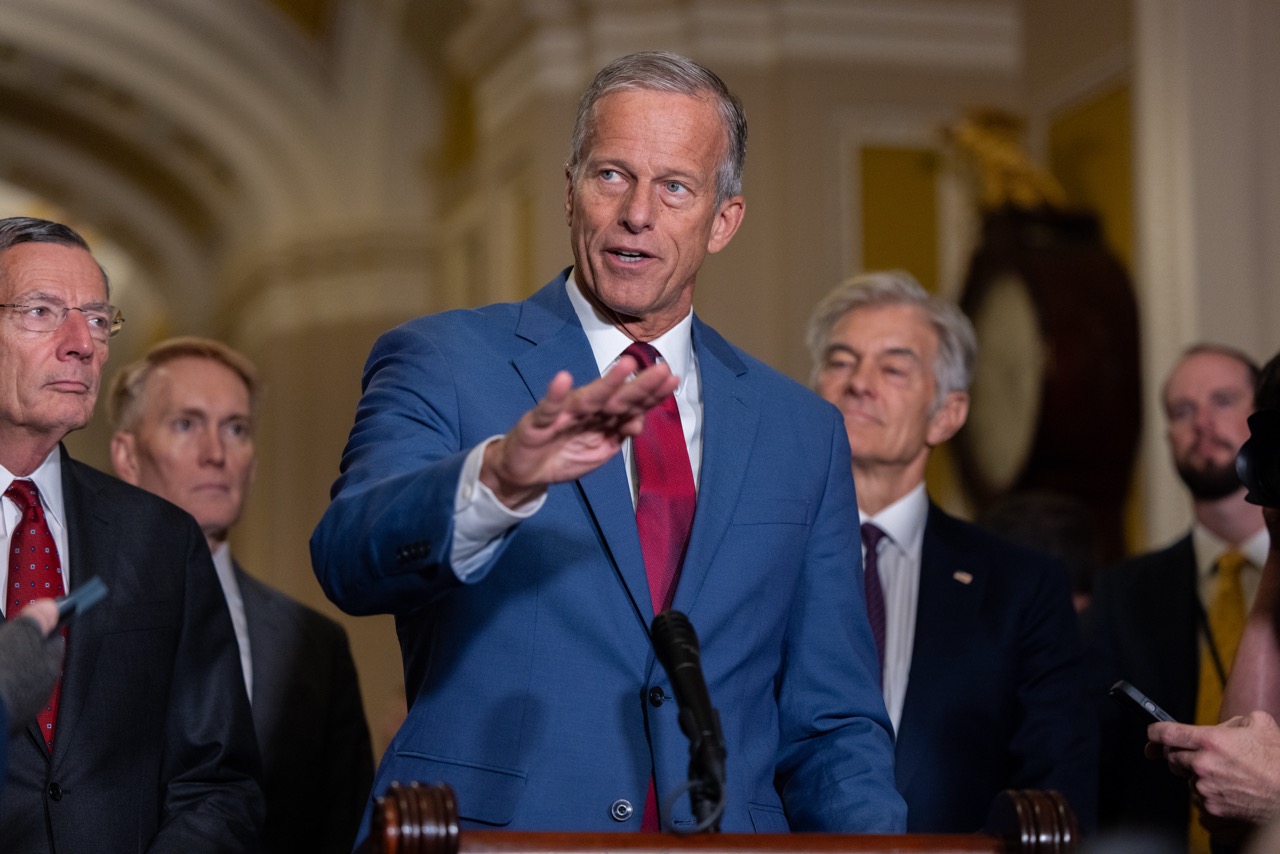In a 51-47 vote on 18/9, the Republican-controlled Senate confirmed 48 of President Donald Trump's government nominees. These included undersecretary positions at the Departments of Defense, Interior, and Energy, as well as several federal agencies and ambassadorships to Greece, Sweden, and Switzerland.
This marked the first time the Senate used the "nuclear option," a procedural change that allows for block voting on multiple nominees. This measure, proposed and passed by Republicans, was designed to counter debate and delay tactics employed by Democrats.
 |
Senate Majority Leader John Thune speaks on 18/9. Photo: Reuters |
Senate Majority Leader John Thune speaks on 18/9. Photo: Reuters
Under the new rule, the Senate can confirm multiple non-judicial and lower-level nominees with a simple majority, rather than holding individual votes and enduring months of debate. The rule does not apply to judicial nominations or cabinet-level positions.
Senate Majority Leader John Thune stated, "Republicans have fixed a broken process. More confirmations are coming. We will ensure President Trump's administration is staffed at the same pace as his predecessors." He emphasized that all nominees in this vote received bipartisan support at the committee level.
Democrats strongly opposed the Republican move. Senate Minority Leader Chuck Schumer warned that Republicans "will regret this.".
Thanh Danh (AP, CNN)












